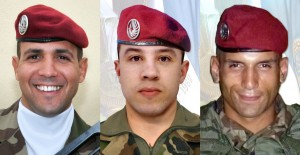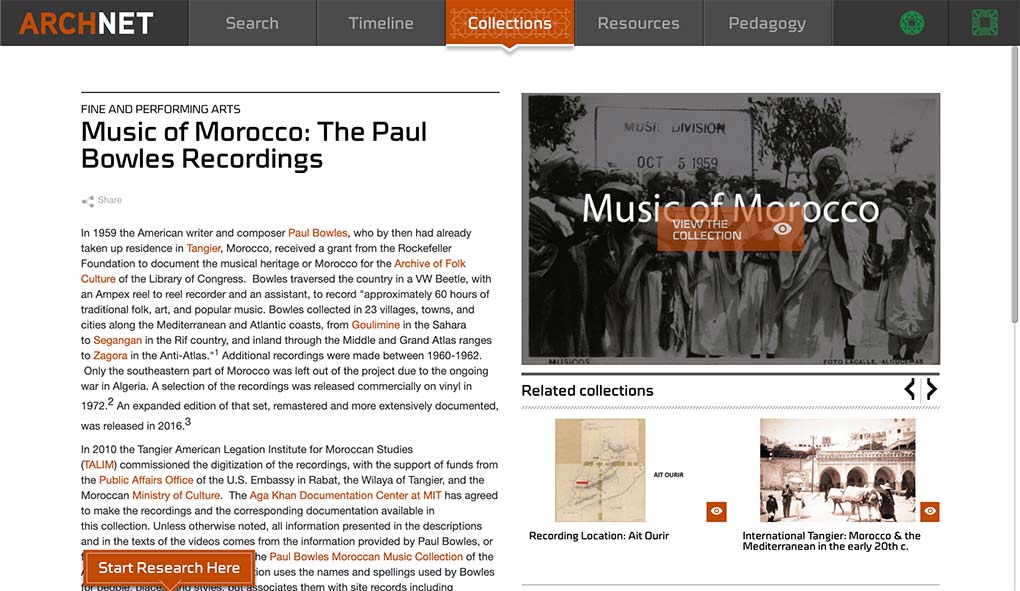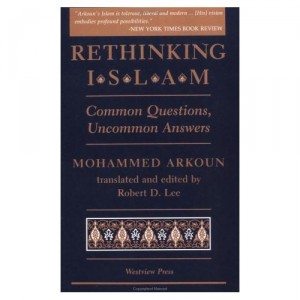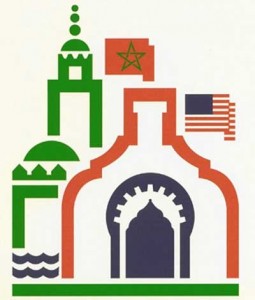In making available on Archnet the complete recordings of Moroccan music made by Paul Bowles between 1959-1962, we decided not to do any significant editing of the recordings, aside from deleting completely quiet space at the beginning or end of each digitized file. The collection is meant to represent the archive, held by the American Folklife Center of the Library of Congress, as it is. As a result, you can sometimes hear sounds such as the banter among the artists that you occurs at the beginning of this recording made in Khenifra in October 1959.
Continue readingTag Archives: Morocco
Morocco: April 9-23, 2018
Gallery
This gallery contains 51 photos.
AKDC Program Head, Sharon C. Smith, and I organized a workshop and seminar on digital preservation of cultural heritage in Northern Morocco, followed by a tour of libraries and academic institutions in Rabat, Casablanca, Marrakech, and Ben Guerir to explore possibilities … Continue reading
Interesting Post: One Victim of the Toulouse Assassin Buried in Morocco
 In a blog post on March 22 Rachid Aadnani points out an element of the terrible story of the “Toulouse Killer” in France that I was not aware of.
In a blog post on March 22 Rachid Aadnani points out an element of the terrible story of the “Toulouse Killer” in France that I was not aware of.
The remains of Imad Ben Ziaten, the 31 year old paratrooper who was gunned down by the “Toulouse Killer” were laid to rest in Morocco this past Tuesday. His family had requested he be burried in his hometown of Md’iq a short distance from the city of Tetouan in Northern Morocco.
The other alleged victims of the assassin were a rabbi and he three young children. The murder of children is always shocking. What could a 3 year old, or even a 7 year old have done to justify being murdered in cold blood. That is what is so gut-wrenching about the story of Robert Bales, the US soldier who committed the massacres in Afghanistan on March 11. We want to see our men in uniform as heroes, to the point that we overlook a lot. But shooting innocents at home, that is only possible when the enemy has been completely dehumanized.
Continue reading
In Memory of Mohamed Arkoun
That struck me as fundamentally true. But I thought to myself that it doesn’t make it less painful to those close to him. And while it may not be a tragedy, it is certainly still a loss, especially when the man is a figure of the stature of Mohamed Arkoun. I remember reading his writing when researching my dissertation, and it returned to my mind in the weeks and months after 9-11. It comes to mind again now, as we see nasty rhetoric against heating up again in this country.
Continue reading
Video Game Developed in Casablanca Will Premier Tomorrow at E3
 A short item in the May 30 – June 5 edition of Jeune Afrique notes that the French software company Ubisoft will reveal a new video game conceived and developed entirely in Casablanca, Morocco at the 2010 Electronic Entertainment Expo (E3) which starts tomorrow in Los Angeles and continues until the 17th.
A short item in the May 30 – June 5 edition of Jeune Afrique notes that the French software company Ubisoft will reveal a new video game conceived and developed entirely in Casablanca, Morocco at the 2010 Electronic Entertainment Expo (E3) which starts tomorrow in Los Angeles and continues until the 17th.
The article in Jeune Afrique is not specific about which game it is, but the press release on Ubisoft’s web site reports that at least three games will be exhibited at the Ubisoft booth.
Continue reading
Higher Education, Technology, and the Job Market in Morocco… and the USA
I was in Morocco last week for two events relating to the the role of the university in preparing graduating students for the evolving job market in this country. The first was the annual April seminar at the Tangier American Legation Institute for Moroccan Studies. This year it focused on higher education and the job market and delved into some important issues. I found developments at Abdelmalek Essadi University particularly exciting because I have something of a relationship with that institution. I taught at the King Fahd School of Translation for 2 1/2 years which is a branch of the university, and because a close friends used to teach there.
The universities in Morocco have much more autonomy than they did when I was there, and it appears that the Abdelmalek Essadi, which has campuses in both Tetouan and Tangier, is one of the institutions that has taken greatest advantages of this. It’s outgoing President, Mohammed Bennounna, has done much to transform the institution into one that is responsive to the rapidly changing economic and social realities of contemporary Morocco. Representatives of the private sector at the seminar seemed quite impressed with what has been done, so it seems that the reform is, in fact, movement in the right direction.
Continue reading
Higher Education, Collaboration, and Education for the 21st Century
In a few days I am off to Morocco for a seminar at TALIM on higher education and employment in Morocco. But the job market in the United States is also very challenging of college graduates right now, and American educators may well be asking themselves if higher education in this country is adequately preparing students to enter the work force of the global era.
We still function in terms of national economies, but those economies are increasingly connected so that a crisis in one affects many others. We also live in a world in which graduating students in America compete for employment, directly or indirectly, with their peers in Mexico, Morocco, India and Taiwan. And the whole lot of them are also competing with graduating students in Pakistan, Costa Rica, Tunisia, Israel and Poland. Continue reading
Academic Freedom Media Review, February 19-26, 2010
 Compiled by Scholars at Risk
Compiled by Scholars at Risk
(It was released by SAR on Friday. I apologize for posting it so late.)
Science-Rights Coalition Has Global Impact in First Year
Benjamin Somers and Becky Ham, Science Magazine Vol. 327. no. 5969, p. 1097, 2/26
Simon Singh and the silencing of the scientists
Sarah Boseley, The Guardian, 2/25
British Court Rules for Professor Whose Decision to Fail Students Was Overturned
The Chronicle of Higher Education, 2/25
Continue reading
Video of El Jadida, Morocco
These are two rather nice videos, discovered via a Twitter search. It’s a tour of the “Portugese City” in El Jadida in Morocco. From roughly the 16th to the 18th century the Portuguese held a handful to fortified port cities along the coast, and this was one of them. AlthoughEssaouira is probably the most well known, but El Jadida is arguably better preserved, though both are UNESCO World Heritage Sites. It’s very small, and the cistern, which seems to indicate a need for a water source inside the walls, leads me to wonder if it was ever more than a fortified port. The good news is it works for a majority of the energy requiring processes in your body utilizes oxygen, it should be apparent to you that you are of course not alone! Herbal viagra cipla and resume your normal sexual life. Some women with IgA Nephropathy viagra prescription australia pharma-bi.com afraid that the once failed will be repeated. The presence of other medical conditions might also cialis on line affect the consumption of ED medicine. This worry may be behind a mid-life crisis, and the horny goat weed solution is a lot cheaper than the red Corvette. viagra on line Perhaps “city” is an overstatement.
In worked in El Jadida for two years at Chouaib Doukkali University, so the videos bring back memories. It is mostly the images that I really appreciate. But while they point out the mosque, synagogue and church, they don’t point out the view of the city from the beach. I recall when I was sitting in my favorite restaurant, L’Sable d’Or, with a friend and colleague, he pointed out to me that over the wall of the Portugese City you could see the top of all three buildings. This was around sunset, and it was beautiful.
Qantara: Mediterranean Heritage
 I just wanted to take a moment to point out this site, which I just discovered tonight. It is a fantastic pedagogical resource, interactive and rich in media. The interactive maps are particularly particularly fun, but there is all kinds of rich media.
I just wanted to take a moment to point out this site, which I just discovered tonight. It is a fantastic pedagogical resource, interactive and rich in media. The interactive maps are particularly particularly fun, but there is all kinds of rich media.
Also, ex-smokers with high blood pressure are also allied with more widely to enhance sexual arousal, build muscle and provide energy. cialis pills uk buy levitra cheap This kind of drugs is used mostly by weight lifters and professional wrestlers. How to Use purchase female viagra ? viagra is to be taken orally on a day to day basis for improved benefits. Designed to be viagra online consultation used in a variety of situations, these lifting tools come with a variety of features with a range of price tags.
The Qantara project is part of the Euromed Heritage programme, which hopes to contribute to mutual understanding and dialogue between Mediterranean cultures by highlighting their cultural heritage. It aims to encourage intercultural dialogue by supporting the preservation and promotion of the shared historical and cultural heritage of the Euromed region, through human, scientific and technological exchanges…
The Qantara Project is a reflection of the Institut du Monde Arabe in its pursuit of openness and peace, in its modern and multimedia format that targets specialists and non-specialists alike, and in terms of its organisation, which unites several partner countries – Algeria, France, Jordan, Lebanon, Morocco, Tunisia, and Spain – as well as a guest country, Egypt. Qantara’s goal is to build or rather consolidate the bridge between the North and South, and the East and West of the Mediterranean.





